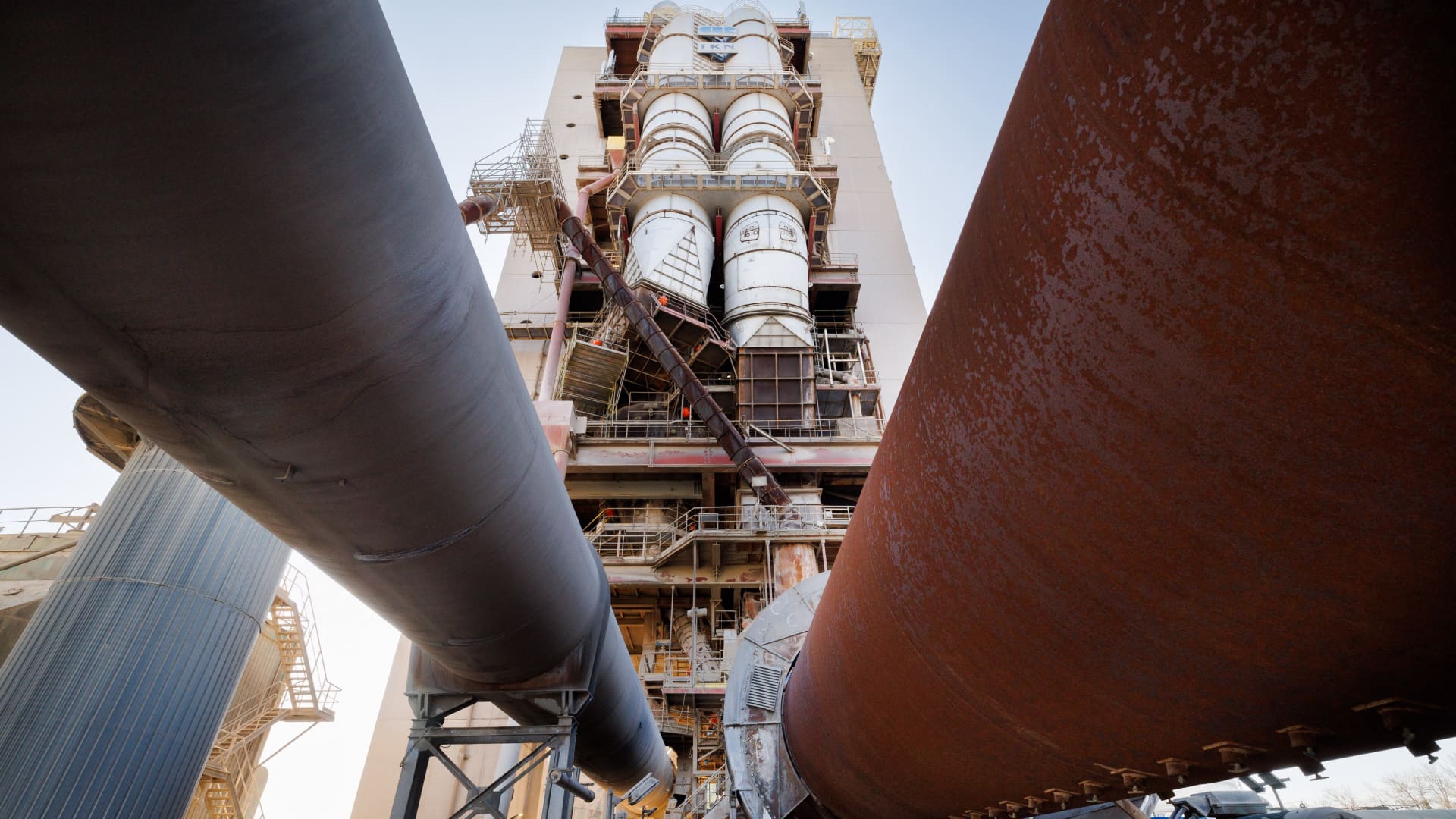LONDON — The head of the world’s climate science authority has compared the rollout of carbon capture and storage (CCS) to “trying to push water uphill,” questioning a technology that the oil and gas industry has long touted as integral to net-zero emission plans.
Jim Skea, the head of the U.N.’s Intergovernmental Panel on Climate Change, warned on Tuesday that scaling up carbon capture still faces significant challenges.
CCS refers to a suite of technologies designed to capture carbon dioxide, typically from high-emitting activities such as power generation or industrial facilities that use fossil fuels or biomass for fuel.
The captured carbon dioxide, which can also be captured directly from the atmosphere, is then compressed and transported via pipeline, ship, rail or truck to be used in a range of applications, or permanently stored underground.
Proponents believe CCS can play an important and diverse role in meeting global energy and climate goals, while some researchers, campaigners and environmental advocacy groups argue that these technologies are not a solution.
“One of the challenges is, if you take things like solar energy, it is modular and small scale, and you can roll it through the system more quickly. Once you get past the threshold, it happens by itself,” Skea said.
“CCS is much more like trying to push water uphill to get it into technological systems, it is more challenging.”
Skea’s comments came during the first day of International Energy Week, formerly known as International Petroleum Week — a three-day global energy conference in London that convenes senior industry figures.
There is still some “engineering problem-solving” to be done, Skea said, underlining the point that carbon capture is likely to be just one part of decarbonization plans.
“The big challenges, for me, are around the business models and the policy framework within which it takes place. If we have the will to address these issues, then I see CCS as having a role to play. It is not the answer to everything, but it is certainly part of the picture,” Skea said.
Alongside the net-zero strategies of some of the world’s largest oil and gas companies, CCS features prominently in the climate plans of many world governments.
Late last year, nearly 200 countries at the COP28 climate conference in the United Arab Emirates agreed to “transition away” from fossil fuels, in a text that the host nation hailed as the “UAE Consensus.”
Some have expressed concern that the deal placed carbon capture alongside renewables as technologies that can deliver a shift away from fossil fuels.
Shell calls for more CCS investment
Asked by CNBC about the challenges facing carbon capture as a climate solution, Shell Chief Economist Mallika Ishwaran said Tuesday that now is the time to “reinvigorate” CCS investment.
“I think it is, to be fair, something that has taken a while to get off the ground. We have been hearing about CCS for decades now, and we don’t see that much turning into something commercial,” Ishwaran told participants at the International Energy Week conference.
Shell’s Ishwaran said carbon capture as a technology has no intrinsic value in energy systems, but its worth is derived from its ability to remove something harmful from the atmosphere.
“I think this is the moment where you have to push on with all the technologies that are required to achieve net zero. And I would put CCS in that because there are going to be uses and cases where you need to have some amount of fossil fuels and you need to somehow find a way of abating those emissions,” she added.
The International Energy Agency has previously called for the oil and gas industry to let go of the “illusion” that carbon capture is a solution to climate change, pushing instead for energy majors to ramp up investments in clean energy.
In a report released on Nov. 23, the IEA said the oil and gas industry faced a “moment of truth” where producers need to choose between contributing to a deepening climate crisis and shifting to clean energy. OPEC Secretary-General Haitham al-Ghais sought to push back at the IEA’s comments, saying the report “unjustly vilifies” the oil and gas industry.
